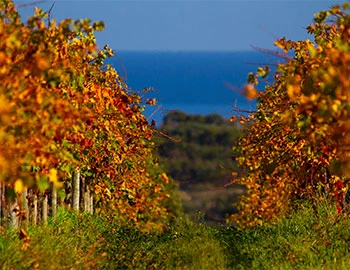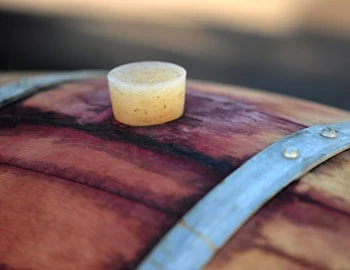Chardonnay Kangarilla Road 2021
McLaren Vale/Adelaide Hills, 750 ml

| Grape variety: | Chardonnay |
| Producer: | Kangarilla Road / Helen u. Kevin O'Brien |
| Origin: | Australia / South Australia / Adelaide Hills |
Description
Pale golden yellow with bright green tinge. Floral nose of acacia, white peach and nectarine with exotic touches of mango. A forward structure with good acidity and grapefruit aroma, this Chardonnay is elegant with a long finish.
Attributes
| Origin: | Australia / South Australia / Adelaide Hills |
| Grape variety: | Chardonnay |
| Label: | Vegan |
| Ripening potential: | 1 to 3 years |
| Drinking temperature: | 10 to 12 °C |
| Food Pairing: | Coquilles Saint Jacques on lentils, Giant crevettes, grilled langoustines, Grilled fish, Apéro riche |
| Vinification: | soft pressing, fermentation in steel tank, fermentation in wooden barrel |
| Maturation: | partly in steel tank, partly in barrique/ Pièces, on the yeast, bâtonnage |
| Volume: | 13.0 % |
| Note: | Contains sulphites |
Kangarilla Road / Helen u. Kevin O'Brien
Chardonnay
King or beggar?
Hardly any variety of vine shows such a broad spectrum of quality as the Chardonnay. Its wines range from faceless neutrality to breath-taking class. It is an extremely low-maintenance vine, which explains why it is grown around the world – even in places where it probably should not be. The aromas of the Chardonnay variety are not very pronounced: a bit of green apple, a little hazelnut; in warmer latitudes, also melon and exotic fruits. The wines are often defined by maturing in casks. They develop more or less subtle notes of butter, toasted bread and vanilla. The grapes achieve their highest expression in their region of origin, Burgundy. Its heart beats in the Côte de Beaune: one might think of the plant growth of Meursault or Puligny-Montrachet. With their finesse and complexity, they can survive for decades. Chardonnay also achieves first class in some Blanc-de-Blancs champagnes. It additionally yields great wines in the Burgundian Chablis, and increasingly in Australia and Chile. A simple rule of thumb for pairing with food: When butter and cream are involved, you cannot go wrong with Chardonnay.
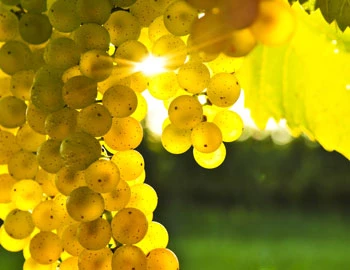
Adelaide Hills
Adelaide Hills: Idyllic wine hill country
The gently rolling Adelaide Hills are just 20 minutes by car from the center of the city that bears the same name. The cultivation area is located between the Eden Valley to the north and McLaren Vale to the south. The favorable elevation produces exceptionally fresh, fruity wines with good structure. White varieties predominate. Only few grape farmers in the region bottle themselves, but increasing demand for wholesome wines means the area is experiencing an upswing.
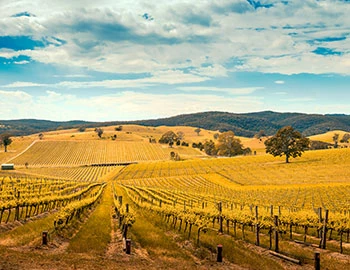
South Australia
South Australia: Shiraz as a driving force
South Australia, with the Barossa Valley as the most well-known cultivation area and the city of Adelaide as a wine metropolis, is without a doubt the centre of the Australian wine economy. The wines produced here have brought the Shiraz from “down under” worldwide recognition. They are fully concentrated wines with dark-berried cassis fruit and masterfully supportive oak wood spices. But Chardonnay, Cabernet Sauvignon, Merlot and Riesling play more than just a supporting role.
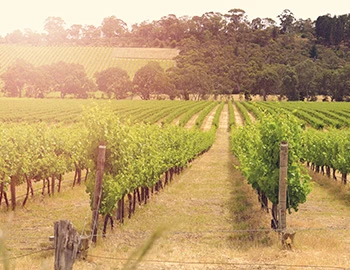
Australia
Australia – A rapid rise to the international elite.
Australia, separated from the other continents by oceans for roughly 50 million years, has almost two hundred years of viticulture history. For a long time, Australians pressed their wines for their own use, with simple, undemanding vines. But later the country began to specialize in classic, European varieties. And with great success –Australian wines today enjoy great prestige and are consumed worldwide..
